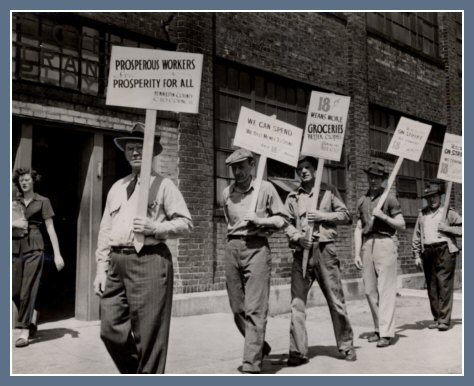What is a 'Right to Work' State, and How Do I Know If I Live in One?

What Does It Mean to Be a Right-to-Work State?
Headline news is telling the story of Labor Unions under attack all over the nation. Some states, however, fought that battle a long time ago and created what are called "Right to Work" laws, designed to curb the power of unions while also protecting employees from unfair business practices. In these states, employees decide for themselves whether they want to join and financially support their labor and trade unions.By leaving the choice up to the employee, no labor union can force membership and dues out of an employee's contract. Though this seems like a good thing, to give choice to the worker, in practical terms it means that the power of labor unions to represent their constituents are effectively destroyed. Without the ability to organize a strike, and negotiate for all employees, labor unions are toothless against the power of the business managers and owners.
Still, labor unions aren't the only way to secure worker's rights. That's why they call it "Right-to-Work", because the state steps in and performs functions that would traditionally go to a labor union. A good example of this in action in a Right-to-Work state is Georgia, where an employee who is laid-off at no fault by their employer cannot rely on the aid of a dedicated labor union to protect their income. However, the state still provides protection to the employee through unemployment aid and unemployment insurance that is paid for by all employers, and the state runs various programs to help skilled workers find work to get them off insurance and welfare.
Which States Are the Right-to-Work States? Am I in one?
Different states have different laws and levels of protection for a worker, but the twenty-two states that are currently considered "Right-to-Work" states are Alabama, Arizona, Arkansas, Florida, Georgia, Idaho, Iowa, Kansas, Louisiana, Mississippi,Nebraska, Nevada, North Carolina, North Dakota, Oklahoma, South Carolina, South Dakota, Tennessee, Texas, Utah, Virginia, and Wyoming. US Territory Guam is also considered "Right-To-Work", though it is not a state, but a US Territory.
In each of these states, no labor union can force workers to buy into the union. Organization of labor unions is often strictly curtailed by local laws. The only exception to this are certain professions, like pilots and air-traffic controllers, that are specifically called out in state and federal laws. If you are unsure whether your profession is required to be part of a union, be sure to ask your human resources contact and fellow workers for information about your union status, and dues-paying membership options.
Where Can I Find More Information About My State's Labor Laws?
If you are unsure what the laws of your state are, visit the Department of Labor Website of your state, and find out what laws apply to you and your situation. Just because you are located in a "Right-to-Work" state, or a state with strong labor unions, does not mean that local laws aren't changing regularly.
For instance, states like Ohio, Maine, Wisconsin, and New Hampshire have recently been in national news because of the state of flux of labor laws in their state. Local laws change all the time, and the only way to be certain you are getting the right information about your state is to visit your state's Department of Labor, to find out what applies to you and your particular working situation.









